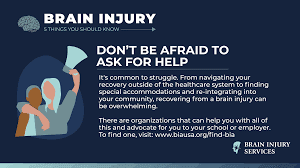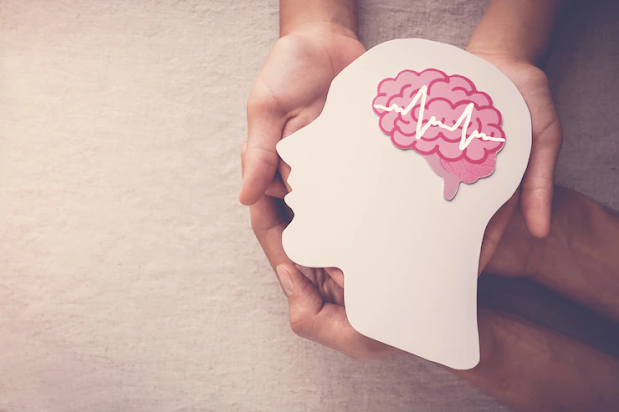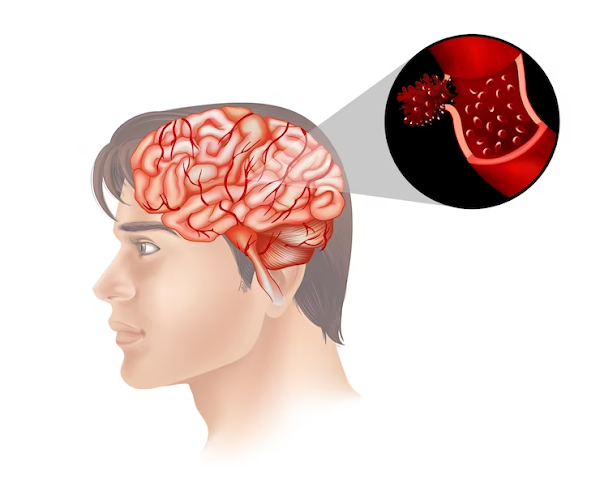Summary: In this
blog post, we'll explore the benefits of joining an aneurysm support group and
how it can transform your journey toward healing and recovery. Get ready to
discover a whole new world of comfort, understanding, and empowerment!
Introduction
Have you
or someone you love been affected by an aneurysm? It can be a scary and
isolating experience, but there is hope. Joining an aneurysm support group can
change your life in ways you never thought possible. From finding emotional
support to learning about the latest treatments and techniques, being part of a
community that understands your struggles can make all the difference.
What is
an Aneurysm?
An
aneurysm is a balloon-like bulge in an artery. Arteries are blood vessels that
carry blood from your heart to the rest of your body. An aneurysm can occur
anywhere in your body but most commonly develops in your brain or along the
route of the aorta (the large artery that carries blood from your heart to the
rest of your body).
If an aneurysm ruptures, it can cause life-threatening internal bleeding.
Aneurysms can also put pressure on nerves or other arteries, which can cause
pain or other problems.
Most aneurysms do not cause symptoms and are only discovered during testing for
another condition. However, some people with an aneurysm may experience:
A throbbing sensation near the aneurysm
Pain when touching or moving near the aneurysm
Sensitivity to light
Nausea and vomiting
If you have any of these symptoms, you must see a doctor immediately. AneurysmSupport Group Northern VA are
often diagnosed using imaging tests such as computed tomography (CT) scans or
magnetic resonance angiography (MRA).
What are
the symptoms of an Aneurysm?
Most
aneurysms cause no symptoms and are only discovered when your doctor orders a
test for another condition.
If an aneurysm ruptures, it can cause life-threatening bleeding inside the
brain. Symptoms of a ruptured aneurysm may include:
Sudden, severe headache
Nausea and vomiting
Stiff neck
Blurred or double vision
Sensitivity to light
Seizure
Paralysis or numbness on one side of the body
Loss of consciousness
The
dangers of living with an Aneurysm
An
aneurysm is a severe medical condition that can lead to life-threatening
complications. If you have an aneurysm, it's essential to be under a doctor's
care and get regular checkups. You should also join an aneurysm support group
to connect with others who understand what you're going through.
Living with an aneurysm can be dangerous because there is always the risk of
rupture. A ruptured aneurysm can cause internal bleeding and even death. If you
have an aneurysm, it's essential to be aware of the signs and symptoms of
rupture so you can get help immediately if it happens.
Some other dangers of living with an aneurysm include:
-Chronic pain
-Fatigue
-Depression
-Anxiety
-Stress
If you're living with an aneurysm, finding ways to cope with the stress and
anxiety that comes with it is essential. Joining a support group can be a great
way to do this. You'll be able to share your experiences with others who
understand what you're going through and get advice on how to cope.
How an
Aneurysm Support Group can help
If you're
living with an aneurysm, you're not alone. Many people just like you are also
dealing with this condition. This is where an aneurysm support group can be so
beneficial. Here, you can connect with others who understand what you're going
through and can offer advice, support, and understanding.

1. A safe space to share your experiences and feelings. When living with an
aneurysm, it can be not easy to talk about your experiences and feelings with
family and friends who don't understand what you're going through. But in a
support group, everyone faces the same challenges as you are, so you can feel
free to open up and share whatever is on your mind.
2. Advice from others who have been there before. One of the best things about
a support group is that you can get advice and perspectives from people who
have been in your shoes before. They know what worked for them and what didn't,
so they can help guide you on your journey.
3. Tips on how to cope with specific challenges. Every person's experience with
an aneurysm is unique, so it's helpful to hear from others about how they've
coped with specific challenges you might be facing. Whether it's managing pain
or dealing with anxiety, there's sure
Conclusion
Donate to Veterans with a BrainInjury groups can be an invaluable
source of strength and comfort, providing a space where people with similar
experiences can come together to share stories and find solace. It is also a
great way to connect with others going through the same struggles, allowing you
to exchange ideas on coping better and learn about treatments that have worked
for them. With dedicated professionals available to provide guidance, such as
those employed by The Aneurysm Support Group, it’s never been easier or more
comfortable for someone affected by aneurysms to get the help they need to live
their best life.




Comments
Post a Comment